"Star Trek" remains one of the longest running science fiction television shows (the newest series is set to release in 2017), as characters have been "boldly going where no man has gone before" for half a century as of this year. The show's long legacy begs the question: how much of the 23rd-century technology patented by the franchise is actually possible right here in the 21st century? How much of this science fiction could be or perhaps even, already is, science fact?
1. Tablets
Tablet computers as we know them today were first introduced by Microsoft in 1993 with the release of the Hewlett-Packard Tablet PC - They were also introduced in "Star Trek: The Original Series" in episodes as early as 1966. These fictional tablets were introduced in the form of the PADD, an abbreviation for the Personal Access Display Device. PADDs resurface throughout several series of "Star Trek" including "The Original Series," "The Next Generation" and "Deep Space Nine" across different planets' cultures, varying slightly in shape, color, and size. This type of variation is not unlike the various brands of tablets available for purchase in this century, a time in which the customization options for companies' products are nearly limitless.
2. Universal Translators
Later built in to communication badges, the universal translating devices of "Star Trek" allow officers and alien races to communicate with ease across the otherwise undoubtedly high language barrier instantaneously. Here in the good ol' days of 2016 we have access to a multitude of apps and other online resources that can almost instantaneously translate most recognized languages. Though we may still have a long while to go before we can translate the alien languages of "strange new worlds," resources such as Google Translate, Siri, and other applications are certainly advancing in this futuristic direction to "make it so," especially with the gradually improving accuracy of voice recognition technology.
3. Replicators
In the "Star Trek" universe, replicators are commonplace gadgets that can essentially produce anything from food to repair tools. Here in the real life universe, 3-D printing has made quite substantial progress within the last few years, so much so that NASA is in the process of designing a device that fairly closely resembles the food replicators commonly found aboard the "U.S.S. Enterprise" or on "Deep Space Nine." This replicator, capable of producing pizza out of just a few key ingredients, may be the key to long-term space travel or possibly a solution for world hunger — one space pizza at a time.
4. Communicators
Fans and newcomers alike, most of us have heard the famous "Original Series" phrase "Beam me up, Scotty." Said through a handheld communication device, these famous words inspired a generation of sci-fi nerds to join their own pretend Starfleet in the haphazard forms of walkie talkies and radios. Pretend no longer, as a real Bluetooth-enabled communication device modeled after the original prop exists and is up for sale. This device is capable of pairing with a smart phone, making original sound effects from the series, and even playing music through its speaker. Cell phones serve as modern-day communicators, with the human race perhaps more connected than ever before. In later series such as "The Next Generation," communicators became badges attached to crew members' uniforms; this technology is also available for hospitals and other medical professions in the form of Vocera communication badges, which are button activated voice communicators. The future is here, and it is well-connected.
5. Tricorders
In the universe of "Star Trek," tricorders are small devices capable of detecting atmospheric anomalies, life forms, medical details and later, magnetic fields. While a real tricorder capable of detecting atmospheric, electromagnetic, and spatial data is already in development, the search for a device capable of identifying medical information is currently underway in the form of a $10 million competition. Some of the requirements for this tricorder include the ability to detect at least 15 health conditions and to continuously measure basic vital signs. This invention would be a substantial leap forward in the medical field, as it would provide a painless and convenient way to measure medical ailments rather easily.




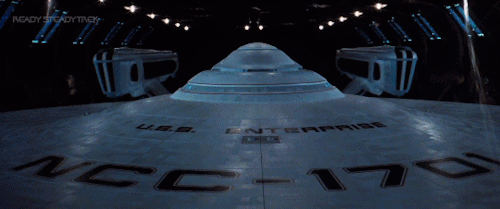
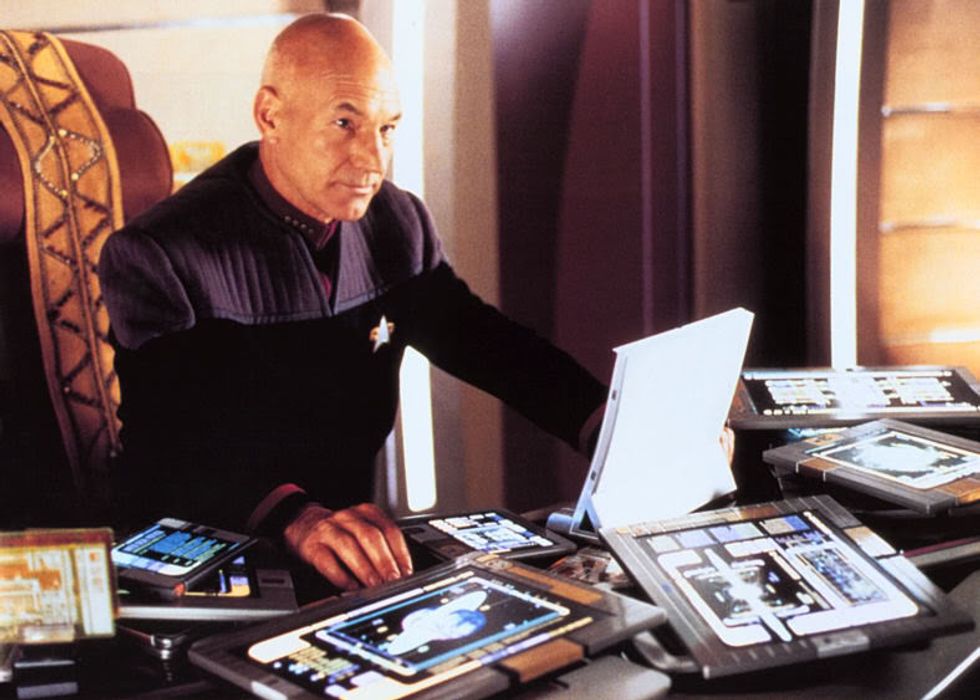
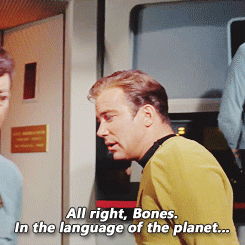
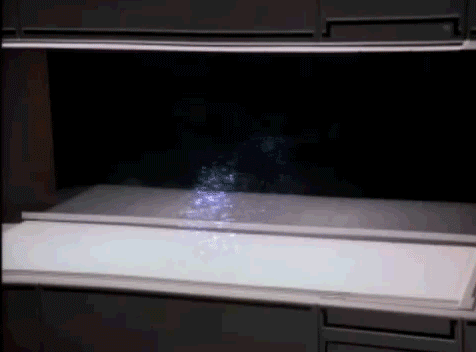
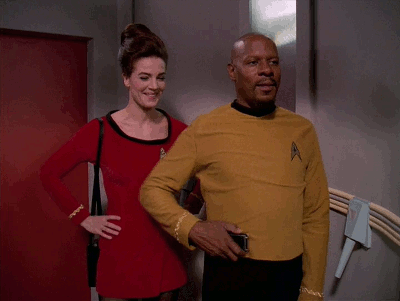
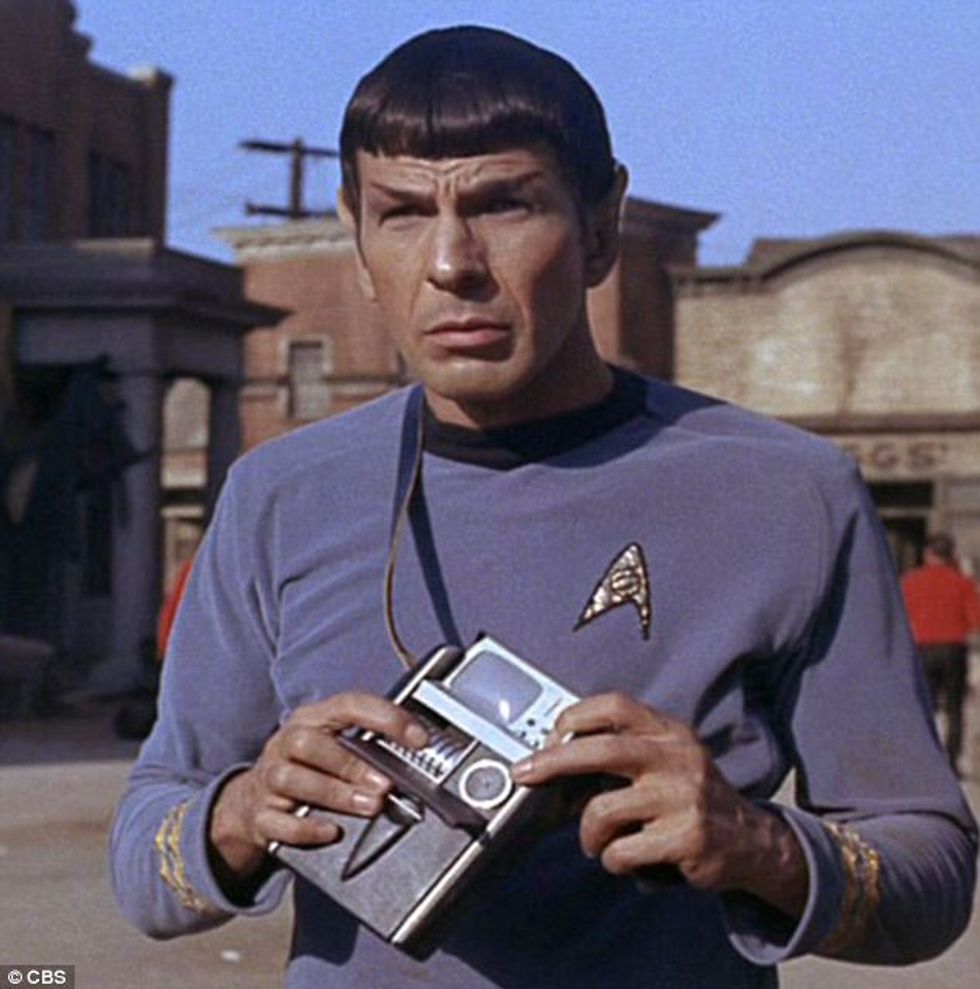






 man running in forestPhoto by
man running in forestPhoto by 









